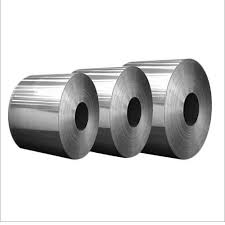
How Korean Aluminum Exporters Are Meeting Global Demands
The growth of aluminum export koreareflects its growing presence on the international market for aluminum. As Korean manufacturers continue to enhance their capabilities in production and meet international demands various significant trends and data point out the rapid growth of this industry.
1. Technological advancements: aluminum export korea are at the forefront of technological advancement, employing advanced manufacturing processes and state-of-the-art equipment. This includes precision rolling mills, modern alloying techniques, and sophisticated quality control techniques. These advances allow Korean suppliers to make premium aluminum products that are in line with strict international standards, resulting in greater export possibilities.
2. Growing Demand in Key Markets: Exports of aluminum from Korea have increased due to growing demand in key markets like the United States, China, and Southeast Asia. Industries such as aerospace, automotive, and construction are increasingly sourcing top-quality aluminium from Korean suppliers for their advanced applications. The capacity of the country to provide aluminum in both custom and standard products caters to diverse industries’ needs, boosting export growth.
3. Strategic Trade Agreements: Korea is leveraging strategic trade deals to boost its aluminum export sector. Trade agreements that are free (FTAs) with various countries and regions have helped facilitate more efficient trade flows and decreased tariffs which makes Korean aluminium products competitive in international markets. These agreements enhance the relationship between Korea and other countries, as well as facilitating the expansion of exports.
4. The focus is on sustainability: Korean aluminum producers are increasingly adopting sustainable practices, including energy-efficient manufacturing methods in addition to recycling efforts. This is in line with international environmental standards and appeal to markets that are eco-conscious. Through a focus on the environment, Korean suppliers enhance their appeal and compete in the global aluminum market.
In conclusion, the increase of exports of aluminum from Korea is driven by technological advancements, a rising demand and strategic trade agreements initiatives to sustain the environment as well as market diversification and a commitment to quality and innovation. All of these help to increase the influence of Korea in the global aluminum market and position it as an important exporter within the industry.